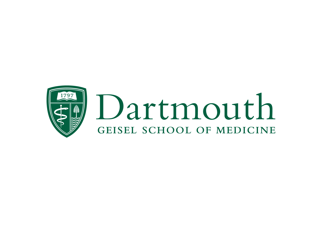Development of a North American HHT Database

The BioInformatics Service Center (BSC) at Dartmouth’s Geisel School of Medicine has been awarded a $131,000 grant for the development of a North American HHT Database. The purpose of this database is to gather de-identified (privacy protected) clinical, radiographic (X-ray, CT scan, MRI scan), genetic, and treatment information on all HHT patients in North America who are evaluated in HHT Treatment Centers of Excellence and consent to participate. By linking all North American HHT Centers, the number of patients is increased twenty times over what any single HHT Center could gather and analyze which makes the HHT Outcomes Project a powerful research resource.
How will an HHT Database advance research? This registry will collect important clinical information on HHT patients that will ultimately help identify HHT drug protocols. For instance, the discovery of anti-angiogenic therapies, and their role in HHT, is a major breakthrough. Preliminary studies in animal models, as well as small clinical studies in humans with HHT, demonstrate that anti-angiogenic drugs can regress faulty blood vessels in HHT. In other words, anti-angiogenic drugs could lead to the elimination of, or significant reduction of, chronic nosebleeds and gastrointestinal bleeding in HHT.
Studies need to be conducted to determine which HHT patients, and which aspects of HHT, will have a clinically important response to anti-angiogenic therapy. Pharmaceutical companies have worked successfully with other rare and uncommon disorders to increase the quality and longevity of life and many of these disorders are on the road to a cure. However, the pharmaceutical companies have indicated that access to this type of patient data resource, and understanding the natural history of HHT must be in place for them to invest financial resources in drug development for HHT. Therefore, the development of a North American HHT Database and the subsequent HHT Outcomes Project have been designated a key priority by the Cure HHT.
Research Study Update
A pilot with two HHT Centers will be conducted in 2018. The HHT Outcomes Registry’s short-term goal is to recruit 1000 HHT patients in the first year with 500 data fields per participant while the projected annual recruitment rate is 1,000 per year with an expected maximum of 80,000 patients.
Funding of this registry is another example of Cure HHT’s goal to transform this disease to advance therapies that are more effective, accelerate discovery, and cure HHT. Funding is still needed to complete the Outcomes Registry.
Excerpts from a presentation by Kristen Anton, Principal Investigator at BioInformatics Service Center at Geisel School of Medicine at Dartmouth
What is a research registry?
A research registry is an organized system that uses observational study methods to collect uniform data to evaluate specified outcomes for a population defined by a particular disease or condition.
Kind of data typically collected includes:
- Patient demographics
- Family history
- Risk factors, exposures
- Disease characteristics
- Disease testing
- Treatment protocols
- Sometimes: biological samples to address genetic characteristics
Why are research registries important?
Research registries provide the ability to:
- Capture standardized, quantifiable information about patients and disease
- Collect population-based data, with enough subjects to scientifically draw conclusions
- Ensure high data quality – so outcomes are reliable
- Collect longitudinal data (sometimes decades)
- Measure or monitor safety and/or effectiveness of treatments
- Springboard new scientific questions
